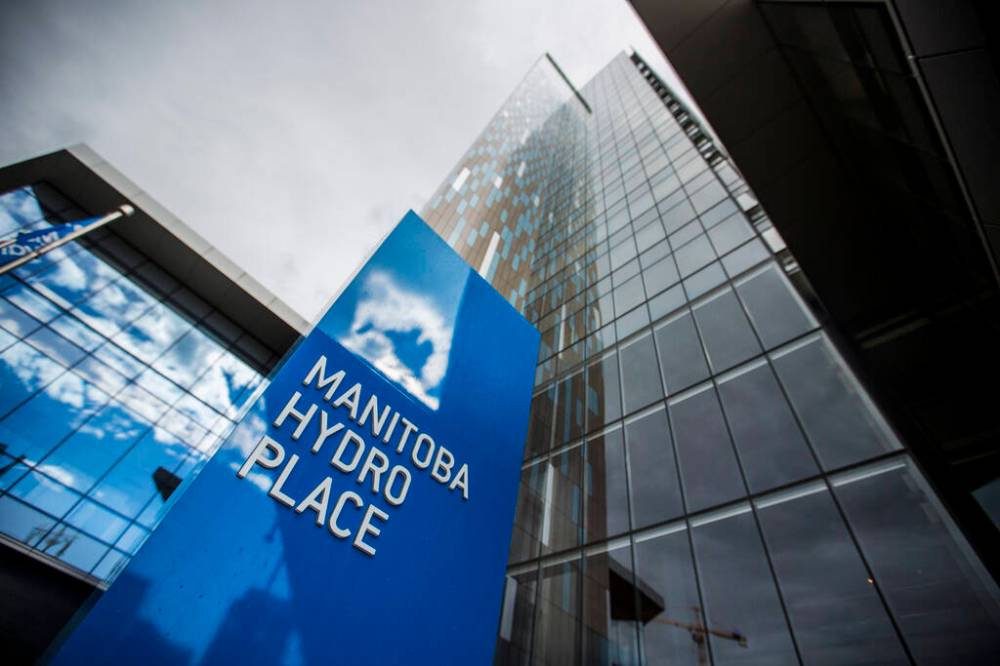Hydro reviewing formal request to deliver electricity, broadband to Nunavut communities
Advertisement
Read this article for free:
or
Already have an account? Log in here »
To continue reading, please subscribe:
Monthly Digital Subscription
$0 for the first 4 weeks*
- Enjoy unlimited reading on winnipegfreepress.com
- Read the E-Edition, our digital replica newspaper
- Access News Break, our award-winning app
- Play interactive puzzles
*No charge for 4 weeks then price increases to the regular rate of $19.00 plus GST every four weeks. Offer available to new and qualified returning subscribers only. Cancel any time.
Monthly Digital Subscription
$4.75/week*
- Enjoy unlimited reading on winnipegfreepress.com
- Read the E-Edition, our digital replica newspaper
- Access News Break, our award-winning app
- Play interactive puzzles
*Billed as $19 plus GST every four weeks. Cancel any time.
To continue reading, please subscribe:
Add Free Press access to your Brandon Sun subscription for only an additional
$1 for the first 4 weeks*
*Your next subscription payment will increase by $1.00 and you will be charged $16.99 plus GST for four weeks. After four weeks, your payment will increase to $23.99 plus GST every four weeks.
Read unlimited articles for free today:
or
Already have an account? Log in here »
Manitoba Hydro is reviewing an application to extend its transmission grid and fibre-optic cable 1,200 kilometres to communities in the Kivalliq region of Nunavut.
The line would deliver up to 150 megawatts of renewable electricity and connect to the communities of Arviat, Whale Cove, Rankin Inlet, Chesterfield Inlet and Baker Lake, enabling high-speed, broadband connectivity for the first time in Canada’s Arctic.
Nukik Corp., says it aims to provide the “essential power and communications backbone” for northern industries, communities and future development.

The Manitoba Hydro building on Portage Avenue (Mikaela MacKenzie / Free Press files)
In April, Premier Wab Kinew and Nunavut’s then-premier P.J. Akeeagok signed a statement to work together to push for an energy corridor to Canada’s North.
At the time, Kinew directed Manitoba Hydro to plan to supply Nunavut with 50 megawatts of hydroelectric power that’s no longer being exported to the U.S. — once a federally funded transmission line is built.
The statement signed by the governments of Manitoba and Nunavut called on the federal government to back the Inuit-led energy corridor and associated hydroelectric upgrades. It promised that Manitoba and Nunavut will work with First Nations in the region to ensure their support for the project, and to preserve lands and waters for the long-term health of the caribou population for generations of Inuit, Dene, Cree and all Canadians.
The federal government has, so far, provided close to $10 million for project development-phase activities, which include the engineering, design and environmental fieldwork necessary for the project to move forward.
A proposed timeline for the Kivalliq Hydro-Fibre Link says construction would start in 2028 and be completed by 2032. The cost of the project hasn’t been spelled out.
The transmission corridor would replace costly, polluting diesel generation with reliable renewable power and bring high-speed fibre-optic cable to remote communities and “strategic mineral regions” while strengthening Arctic resilience and Canada’s sovereignty, Nukik said in a news release Thursday.
The project — “a model of collaboration and vision” — has the support of a lengthy list of stakeholders, including Manitoba Hydro, Nukik said.
The transmission service request to Manitoba Hydro is a formal application that begins the process of evaluating and securing access to the province’s transmission grid. It initiates detailed technical and commercial studies that will determine how clean energy can be transmitted from Manitoba into Nunavut.
Manitoba Hydro is expected to comment later Thursday on the application, and if the Crown corporation will be able to supply 150 megawatts of clean energy to Nunavut customers as demand for electricity grows at home.
Nukik said it recently became the first Arctic electricity developer in North America to be certified by the Midcontinent Independent System Operator, one of the major regional transmission organizations in the U.S. It positions the Kivalliq Hydro-Fibre Link within a recognized continental transmission framework and strengthens the project’s technical credibility, the corporation said.
carol.sanders@freepress.mb.ca

Carol Sanders
Legislature reporter
Carol Sanders is a reporter at the Free Press legislature bureau. The former general assignment reporter and copy editor joined the paper in 1997. Read more about Carol.
Every piece of reporting Carol produces is reviewed by an editing team before it is posted online or published in print — part of the Free Press‘s tradition, since 1872, of producing reliable independent journalism. Read more about Free Press’s history and mandate, and learn how our newsroom operates.
Our newsroom depends on a growing audience of readers to power our journalism. If you are not a paid reader, please consider becoming a subscriber.
Our newsroom depends on its audience of readers to power our journalism. Thank you for your support.

